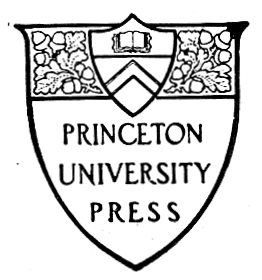| Transcriber's note: | A few typographical errors have been corrected. Theyappear in the text like this, and theexplanation will appear when the mouse pointer is moved over the markedpassage.Figures 41 and 42 have been interchanged from the printed copy in order to match the text. |
Princeton University
THE LOUIS CLARK VANUXEM FOUNDATION
LECTURES FOR 1915-1916
The Louis Clark Vanuxem Foundationof Princeton University
was established in 1912 with a bequest of $25,000 under the will of Louis Clark Vanuxem, of the Class of 1879. By direction of the executors of Mr. Vanuxem's estate, the income of the foundation is to be used for a series of public lectures delivered in Princeton annually, at least one half of which shall be on subjects of current scientific interest. The lectures are to be published and distributed among schools and libraries generally.
The following lectures have already been published or are in press:
1912-13 The Theory of Permutable Functions, by Vito Volterra
1913-14 Lectures delivered in connection with the dedication of the Graduate College of Princeton University by Emile Boutroux, Alois Riehl, A. D. Godley, and Arthur Shipley
1914-15 Romance, by Sir Walter Raleigh
1915-16 A Critique of the Theory of Evolution, by Thomas Hunt Morgan
LOUIS CLARK VANUXEM FOUNDATION
A CRITIQUE
OF THE
THEORY OF EVOLUTION
BY
THOMAS HUNT MORGAN
PROFESSOR OF EXPERIMENTAL ZOOLOGY IN
COLUMBIA UNIVERSITY
LECTURES DELIVERED AT PRINCETON UNIVERSITY
FEBRUARY 24, MARCH 1, 8, 15, 1916
PRINCETON UNIVERSITY PRESS
PRINCETON
LONDON: HUMPHREY MILFORD
OXFORD UNIVERSITY PRESS
1916
Copyright, 1916, by
Princeton University Press
Published October, 1916
PREFACE
Occasionally one hears today the statement that we have come to realize that we know nothing about evolution. This point of view is a healthy reaction to the over-confident belief that we knew everything about evolution. There are even those rash enough to think that in the last few years we have learned more about evolution than we might have hoped to know a few years ago. A critique therefore not only becomes a criticism of the older evidence but an appreciation of the new evidence.
In the first lecture an attempt is made to put a new valuation on the traditional evidence for evolution. In the second lecture the most recent work on heredity is dealt with, for only characters that are inherited can become a part {vi}of the evolutionary process. In the third lecture the physical basis of heredity and the composition of the germ plasm strea
